
The Mountain Between Us, It, Murder on the Orient Express, Wonder, My Cousin Rachel. These films released in 2017 have one thing in common, and you may have guessed it already: They were all books that were later adapted into movies.
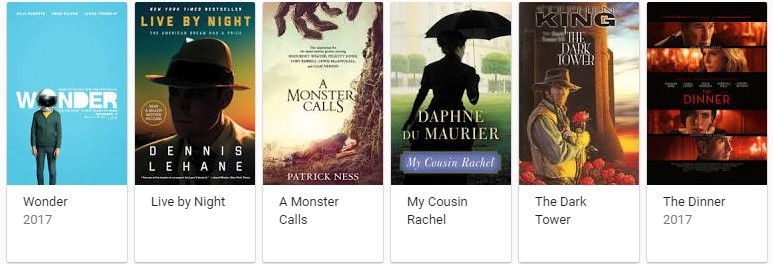
Similar to its affinity for sequels and remakes, it seems to me like Hollywood is increasingly looking to books for inspiration for the next blockbuster hits. From a business standpoint, it makes total sense because producers can draw on the popularity of a certain book and use that to their advantage when it comes to marketing the film’s release.
As an avid reader, I am always excited at the news that a book is being adapted as a feature film. My mind is occupied by thoughts of who the actors/actresses are going to be (and if I approve), if the film will stay true to the book, and most importantly, if the movie will be just as good as the book. The thought of finally being able to visualize what has only previously been limited to my imagination is always an exciting prospect.
However, I am usually underwhelmed after watching a certain film based on a book, and if you asked me a year ago which one I would prefer: the movie or the book, I would have immediately chosen the book.
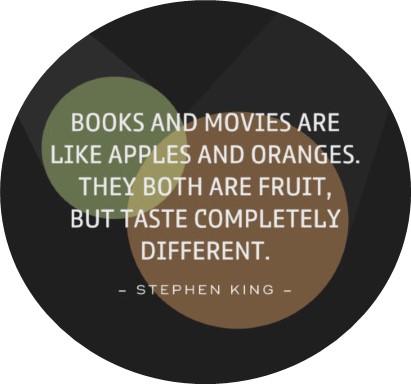
Hands down. No doubt. However, within the past year, I have come to appreciate movie adaptations of books more because I have realized that comparing books to their counterpart movies isn’t fair; at the end of the day, the two mediums of storytelling have different advantages and different qualifications for what makes them good. Like Stephen King once said, comparing one to the other is like comparing apples to oranges. They are both great sources of entertainment, but they aren’t comparable. For those still reluctant to accept this theory, I’ll be delving more into this age-old question: “What’s better: books or movies?” I’ll make a case for each argument and let you make the final call.
The popular belief is that books are often a hundred times better than their movie counterparts; if you need any further proof, just take a look at the following Washington Post visual.
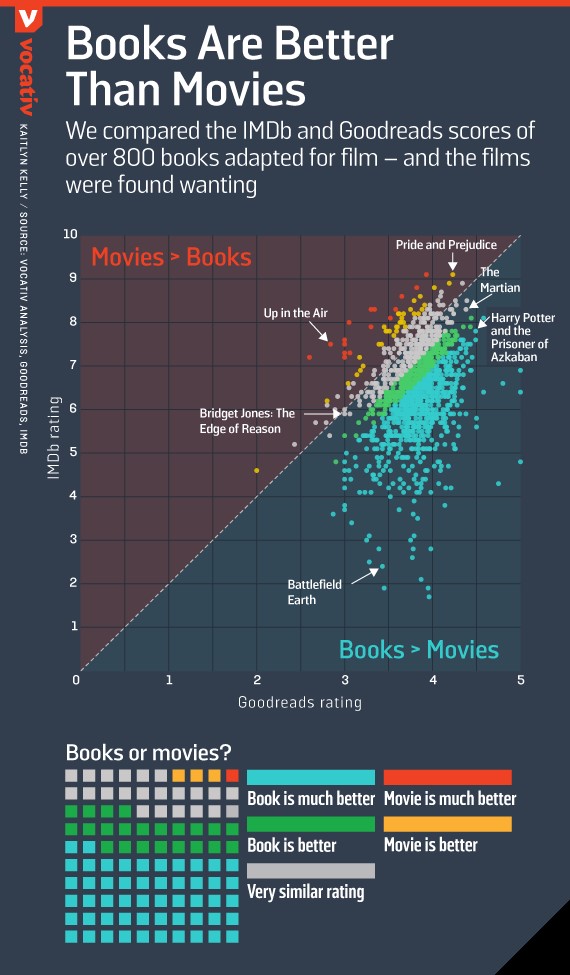
Books are great because they allow the reader to be a part of the story; we are the observers that have insight into the character’s thoughts and feelings, and all the nuances that create three-dimensional characters. With books, there’s just more. More detail, more focus on character development, and more depth to the meaning of the artwork. It’s also the more time-consuming form of the two, and after finishing a novel, after a couple of hours of being immersed into a different world and mind space, it seems like you have suddenly been thrust back into reality.
On the other hand, the great thing about movies is their ability to show, and the overall experience of watching one. While reading a book, I often have a movie reel playing in my head. I can map out the setting, I can see the characters’ expressions, and I can empathize with their emotions.
However, watching the same story unfold on the big screen is a different experience. While reading spurs your imagination, a movie helps you visualize all the elements of the books that were previously confined to your imagination. It immerses you into the story in a different way than a book.
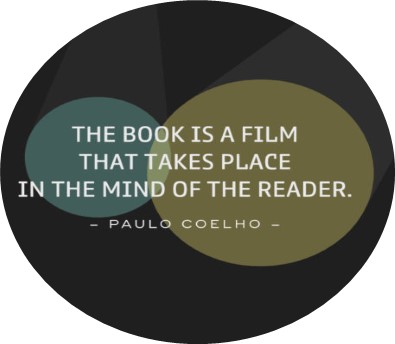
For example, instead of reading about the magical world of Harry Potter, while watching the movie, I can actually see what J.K. Rowling means by “He was almost twice as tall as a normal man and at least five times as wide. He looked simply too big to be allowed, and so wild – long tangles of bushy black hair and beard hid most of his face, he had hands the size of dustbin lids and his feet in their leather boots were like baby dolphins.” To put it simply, movies make it easier for us to just lean back and enjoy the show.
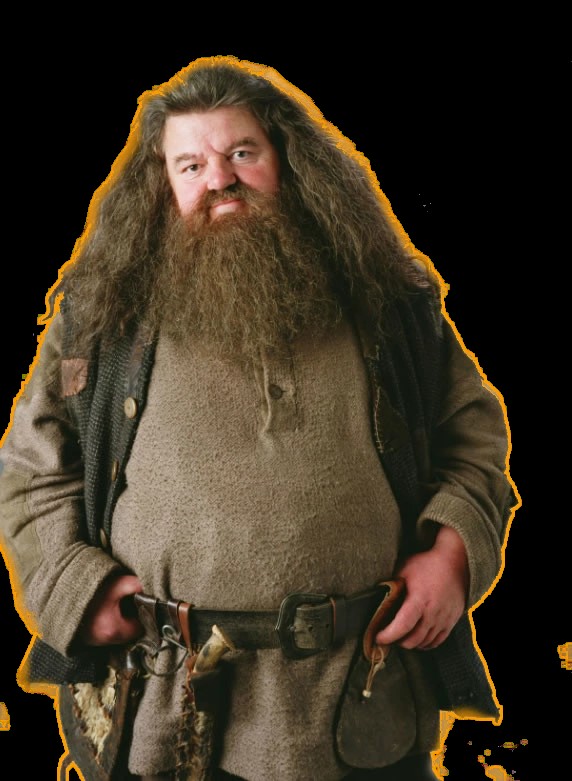
An added benefit of movies is the music and visual designs that enhance the experience of watching a film. Imagine, for example, that you are watching an emotional scene. It’s the climax of the story, and in the background plays a gentle orchestra, that eventually swells into a big crescendo as the story reaches its resolution. In that moment, you feel exactly what the characters feel, and your heart races along with the melody of the music. So although (in some cases) the audience might not have a play by play of the characters’ thoughts and emotions, movies have another way of conveying the emotion and tone of a certain scene.
If you feel like further exploring this age-old debate personally, come down to Media Services to check out movies even the worst critic would have to admit are just as good as the books. Don’t know where to start? Try Pride and Prejudice, Psycho, Jaws, The Godfather, etc.
Until next time! RE
Robiati Endashaw is a sophomore studying public policy analysis in KSB with a minor in Economics. In her spare time, she enjoys reading non-fiction and watching crime documentaries.

1 Comment
Oh gee thanks so much . I also feel quite the same way too when it comes to books as in they are so much enjoyable because they allow us as the reader to explore the depths of my imagination and every thing happening Is felt dearly.
😊